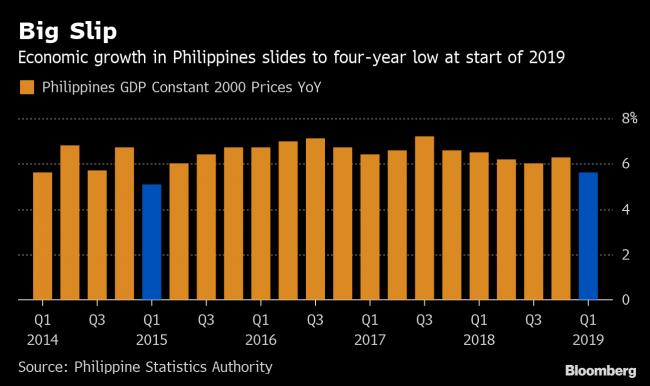(Bloomberg) -- The Philippine economy grew at the slowest pace in four years in the first quarter as delays in passing the budget stalled government spending. The peso and stocks fell.
Gross domestic product rose 5.6% in the first quarter from a year earlier, lower than almost every forecast in a Bloomberg survey of economists. Growth slowed from 6.3% in the last three months of 2018.
Key Insights
- A standoff in Congress led to delays in approving the government’s budget, with state spending on new projects halted until it was resolved in April. The government expects weaker growth as a result of the delays
- The Philippines has been one of the fastest-growing economies in the region, underpinned by the government’s ambitious infrastructure program
- A sharp slowdown in inflation from a nine-year high last year may give a boost to household consumption, which comprises more than 65% of GDP
- Low inflation and growth risks may prompt the central bank to cut interest rates later on Thursday. It raised rates by 175 basis points in 2018
Get More
- The peso fell 0.4% to 52.3 per U.S. dollar as of 10:12 a.m. in Manila. The benchmark stock index dropped 2 percent, it’s biggest decline since February
- Economic managers are pinning their hopes on the mid-term election in May -- and the heavy campaign spending that comes with it -- to power growth
